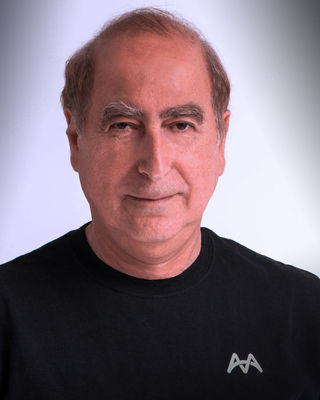Career
Reflections from the C-Suite: An Interview with Eli Fathi
Giving to others can be a successful business strategy.
Posted November 1, 2016
The notion of giving to others may seem counterintuitive as a business strategy, especially when you look at media portrayals of success. However, Adam Grant’s international bestseller Give and Take brilliantly questioned this belief through a persuasive array of research and case examples.
Eli Fathi has observed first-hand the benefits of a giving philosophy. This serial entrepreneur with several successful exits has founded or co-founded seven companies that currently employ over 350 people. In his previous venture, he was the Co-founder and co-CEO of Fluidware Corporation from inception until it was acquired by SurveyMonkey in August 2014.
Eli has served on a number of diverse NGO Boards and is involved with various academic institutions and has been recognized by his peers and the community with a number of awards. Most recently, in 2016, Eli received the Algonquin College Alumnus of the year award as well as the Startup Canada Senior Entrepreneur award for Ontario.
Eli is currently the CEO of MindBridge Analytics Inc., a provider of human fraud detection platform. The company was incorporated on March 2015 and currently has 17 full-time and 4 part-time employees.
Eli lives in Ottawa with his wife and has two daughters. He holds a B.Sc and M.Sc. degrees from the University of Ottawa.
I recently spoke with Eli about how a focus on giving has contributed to his success as well as his secrets for developing an effective mentoring relationship. I also interviewed several of his mentees who have benefitted greatly from his guidance and support. They were:
- Sabrina Leblanc - Managers of Sales and Customer Success at SurveyMonkey
- Aydin Mirzaee - Co-founder and co-CEO of Fluidware; currently exploring his next opportunity
- Solon Angel – Founder of Mindbridge
___________________________________________________________

CRAIG: Why did you adopt this philosophy of helping people?
ELI: It is part of my DNA. I remember during my childhood my parents were always giving to other people. Then in university, one of my professors asked us to imagine what it meant to make a difference in the life of one person and how it could change the world. That idea was powerful and really resonated with me.
Since that time, whenever I see any opportunity to help someone I do it. The number of people who have thanked me for making a difference in their lives over the past 20 years is absolutely astonishing. It also feels great to know that I am making a positive difference, which is a badge of honor for me. What better reward can you get?
CRAIG: What is one lesson you have learned from your mentees?
ELI: The value of hard work. It is amazing how much they give to this relationship, which motivates me to do the same. It is also great to see when someone takes the homework we discussed, puts it into practice, and starts benefitting from that effort. Sometimes people, especially in start-ups, work so fast, they forget to slow down and think about what they are doing and why they are doing it. I try to help my mentees remember that.
CRAIG: What advice do you have for people who are looking for or have a mentor?
ELI: You need to really connect with the person. You want to find a mentor that you believe in, someone you can trust and build a relationship with. If there is no chemistry, it is a waste of time because you won’t follow their advice. You also need to share the same values, which is the most important thing.
His mentees also talked about the importance of fit, especially from a values perspective:
SABRINA: My advice is to not try to force a connection if it is not there. The most important thing for this relationship to work is that you must share the same values.
AYDIN: More important than anything else, Eli and I share a lot of the same values and that congruency is what allows this relationship to work out really well.
SOLON: We have a very strong values match, which makes this work so well. It is also inspiring to meet someone who is so successful, yet focuses on integrity and fairness, as well as the importance of giving back.
CRAIG: What advice do you have for someone who wants to mentor others?
ELI: Don’t become a mentor unless you are willing to put in the time and the effort to help the mentee. It is a lot of responsibility. People ask me how I do it and I tell them I spend less time sleeping (smiles).
I also think it is very important that you do not just tell someone how to do something. To be a great mentor, you need to ask questions and guide the mentee to find their own answer. However, it is important to remember that they need to figure this out on their own. If you tell them what to do, they will never learn how to do it and will always come back and ask you for the answer. Although that may feel good and make you feel smart, this is not what mentoring is about. You want to guide them so they learn how to tackle their problems so they can move on to more challenging and complicated issues, which grows them and their business.
Aydin echoed the value of this approach:
AYDIN: Eli doesn’t tell you what to do. He will give you things to keep in mind. He will show you on one side, there are certain considerations, and then highlight what’s on the other side of the coin. Then he will ask ‘which ones are most important to you?’ This is a very powerful question, because it cuts down on the noise and helps you make a decision that aligns with your core values. Also, decisions are not black and white very often, so it helps you see the options more clearly and highlight some of the tensions that exist.
CRAIG: If there are some executives that are interested in mentoring but are concerned about the time commitment, what would you say to them?
ELI: First of all, it is a very rewarding experience. In a lot of ways, it is like shaping your children, because you are teaching them about the importance of living their core values.
If you decide to mentor and are concerned about the time, then start with baby steps. Begin with one person and mentor them on simpler issues. Don’t go and start mentoring the CEO of a company that has major problems. Go and start with something small and see if you like it and if you find it rewarding.
CRAIG: Given your experience in mentoring, what have been some important lessons you have learned?
ELI: I would say two things. First, be careful when the mentoring gets mixed with friendship. Although this often happens, especially with long-term relationships, it can create complications. You have to remember that your advice or observations as a mentor must remain unbiased and truthful. You have to call it as it is, the good and the bad. Sometimes, when you become friends, mentors may be tempted to water down the feedback, which is not good for anyone. As a mentor, you need to be aware of this possibility and think about how you would give advice to a stranger. That helps bring me back sometimes.
The other lesson I have learned is that everyone needs a mentor. No matter what stage of your career or how many people you manage, you can benefit from this type of guidance and relationship. Although the mentoring may take on different forms based on where you are, the underlying value is still the same.
One of his mentees highlighted the importance of receiving honest feedback:
SOLON: He will call you out if he thinks you need it, but will do it very respectfully. He wants what is best for you. You cannot put a price on that.
CRAIG: What are the key success principles you follow?
ELI: Everyone has heard the expression ‘keeping up with the Joneses. Don’t ever listen to that. It does not do you any good.
Never compare yourself to other people because there will always be someone who is stronger, smarter, faster, richer, and so on. What you have to do is think about what you want because the only one who impacts your life is you. Set up a goal, create a plan, and go achieve it.
To me, another important part is to make sure you are always adding value to your community. As the expression goes, ‘rising tides raise all boats.’
You also never want to start learning. The day you stop learning is the day you stop growing.
CRAIG: What is one of the things you are most proud of ?
ELI: I really enjoy using my businesses as a vehicle to give someone an opportunity that other people may shy away from. Have faith in people and put them in positions to succeed and they will.
Sabrina shared how this philosophy impacted her career:
SABRINA: If you ask Eli, he will say ‘You did the work so you deserve the credit. The only thing I did was give you the opportunity, which you took to the next level.’ However, the way I see it is the fact he gave me the opportunity in the first place, which a lot of people would not do. He also doesn’t care if you have experience, if you have the willpower and attitude, he gives you more responsibility knowing you can handle it. I manage 15 people within Survey Monkey, and if it weren’t for him, I can honestly say I would not be doing that.
To close the interview, I asked each of his mentees to share one of the things they learned from Eli that sticks with you?
AYDIN: Choose your battles. Although you want to win, sometimes taking a strategic loss is worth it, because it can help you win the overall war.
SABRINA: From a leadership perspective, the best I learned is to stay humble and to get to know your people well and know how they like to interact and adjust your style to theirs.
SOLON: Be true to yourself and you will succeed. You don’t have to play games to get ahead. People will eventually come around. Acting with honour and respect builds a tremendous amount of social capital, which is invaluable in our personal and professional lives.




